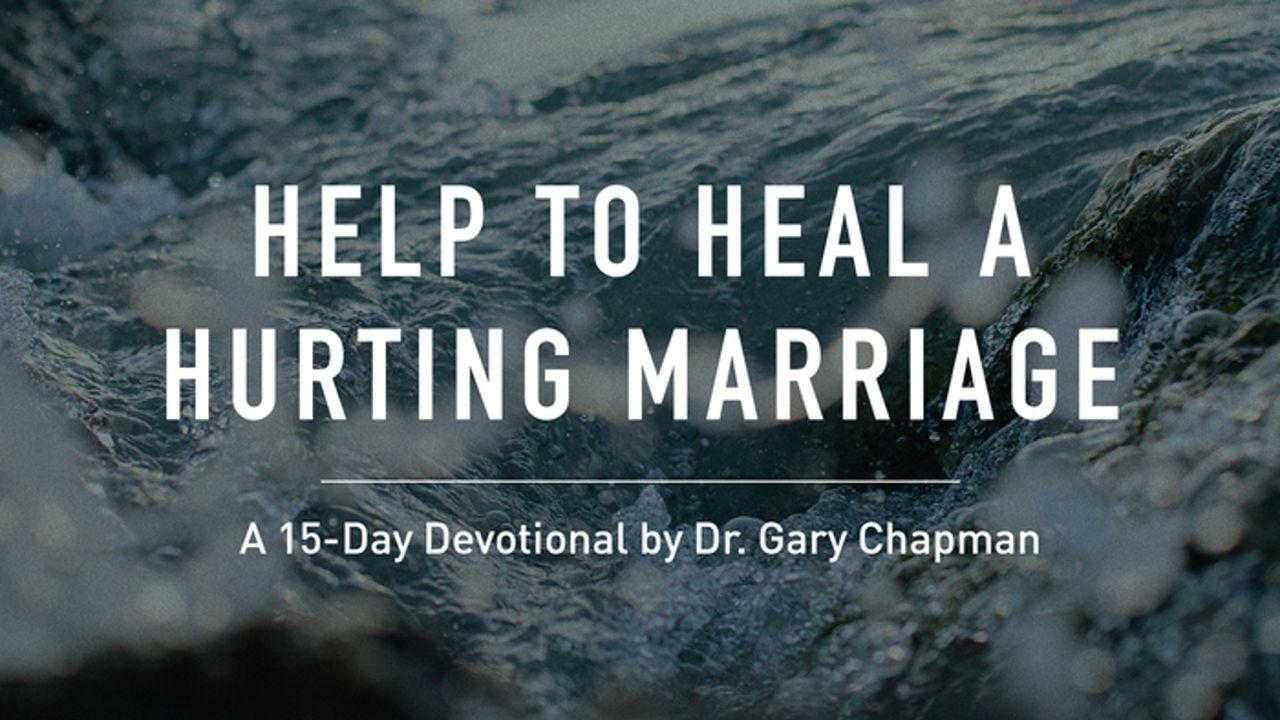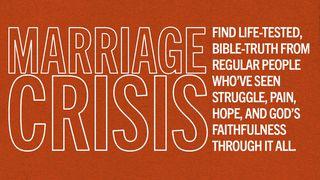Help For A Hurting MarriageMuestra

Devotion from When Sorry Isn’t Enough by Gary Chapman and Jennifer Thomas
Truly Sorry and Truly Forgiven
Steven Spielberg’s award-winning movie Lincoln looks at the months in the great president’s life when he was pushing for passage of the Emancipation Proclamation. The success of the film has reminded Americans once again of our sorrowful history of slavery. Much has been said over the years about “apologizing” for enslavement, about making reparations and effecting reconciliation. The same has happened in regard to other unjustly treated groups such as Japanese-Americans who were interned during World War II or Native Americans who suffered so greatly as our nation expanded westward.
And today, when so many conflicts in our families and in our cities are “resolved” at the point of a gun, we must ask: What would happen if we all learned to apologize more effectively? If we learned to forgive and accept forgiveness?
Perhaps we can learn from a five-year-old.
When our granddaughter Davy Grace was five, her mother and father allowed her to spend a special week with Grandma and Grandpa. Karolyn and I were elated. The week was great fun. But one experience is indelibly printed in my memory. Karolyn has a special drawer where she keeps stickers for the grandchildren. Davy Grace, of course, knew about this special drawer and asked her grandmother if she could have some stickers. Karolyn told her that she could have three, any three she chose.
An hour or two later, we began to see stickers all over the house. Davy Grace had taken the entire sheet of stickers and placed them randomly. Karolyn said to her, “I thought I told you to take only three stickers, but you have taken the whole sheet.”
Davy Grace stood in silence as her grandmother continued. “You disobeyed Grandmother.”
Tears cascaded down Davy Grace’s face as she said, “I need somebody to forgive me.”
I shall never forget those words nor the pain that I saw in her young face. My tears joined her tears as I embraced her and said, “Honey, all of us need somebody to forgive us. And Papa will be happy to forgive you, and I’m sure Grandmother will also.” Karolyn joined us in our hug of reconciliation.
I have reflected upon that scene many times. I’m convinced that the need for forgiveness is universal and that acknowledging that need is the essence of an apology.
Years ago while living in Chicago, I often volunteered at the Pacific Garden Mission. I met scores of men and a few women who shared with me their journey to the streets. I recognized a common thread through all of their stories. All of them had a series of experiences in which someone treated them unfairly — at least this was their perception. And no one ever apologized. Many of them admitted that they also had treated others unkindly and failed to apologize. A string of broken relationships was the result. Eventually, there was no one to whom they could turn, so they turned to the streets. I have often wondered how different things might have been had someone taught these men and women to apologize.
On the other end of the social spectrum is corporate America. In recent years, we have seen numerous corporate executives indicted and sometimes convicted of fraud. One wonders what would have happened if these executives had learned to apologize when they were climbing up the corporate ladder.
Many government employees have also joined the ranks of the convicted. Most of them have pleaded innocent until they were proven guilty. When apologies have been made, they tended to be stated in very nebulous terms and often appeared self-serving. In the case of government and public executives, the reluctance to apologize may grow out of fear that the apology will be used against them. They reason, Better to keep quiet and maintain my position than to apologize and lose everything. Many have never come to understand that there are things in life more important than money and power.
The art of apologizing is not easy, but it can be learned, and it is worth the effort. If apologizing were a way of life, no walls would be built. Relationships would be authentic. Certainly people would fail, but the failures would be dealt with in an open and honest manner. Regret would be expressed; responsibility would be accepted. Restitution would be made. Genuine repentance would be our intention. Perhaps we should be praying, “Father, give me the attitude of Davy Grace: ‘I need somebody to forgive me.’”
REACT: Think of some of the conflicts and ills in our society. How would admitting wrong help heal some of these ills?
To purchase Dr. Gary Chapman's three book set, "Help to Heal a Hurting Marriage," visit https://www.moodypublishers.com/help-to-heal-a-hurting-marriage/
Escritura
Acerca de este Plan

A 15-day devotional drawing from Dr. Gary Chapman's popular three book set, "Help to Heal a Hurting Marriage." Excerpts from Loving Your Spouse When You Feel Like Walking Away, Anger and When Sorry Isn't Enough.
More






